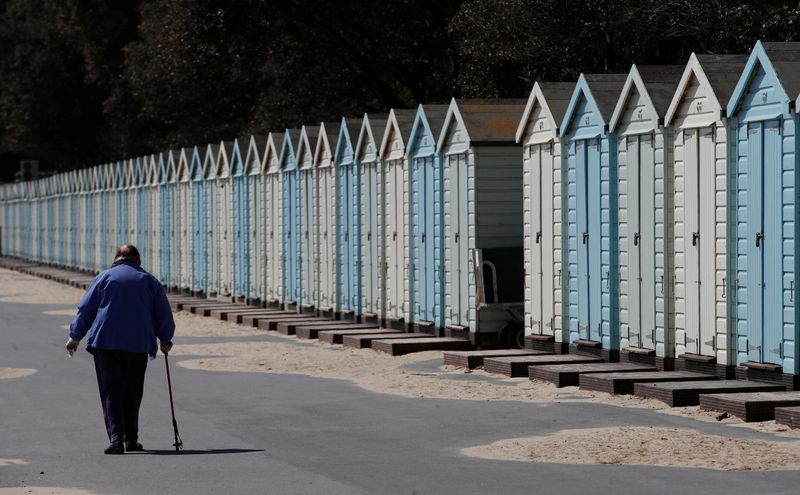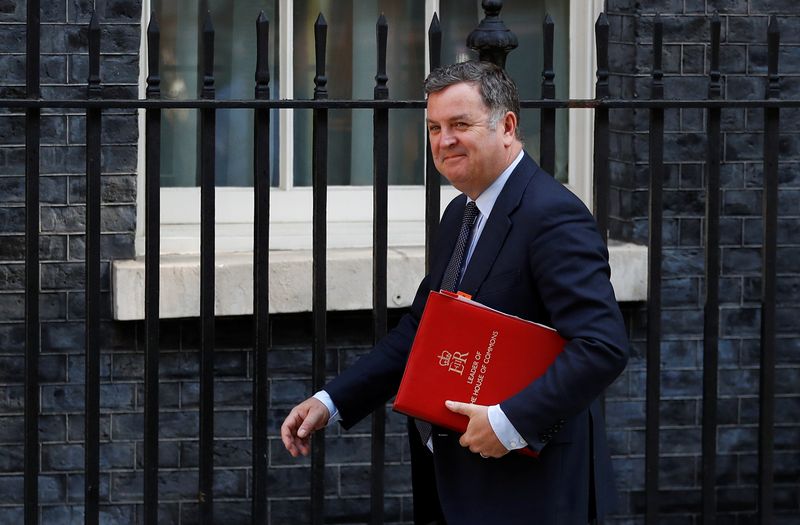LONDON (Reuters) - Britain's government might need to temporarily break the link between wage growth and annual increases in old-age pensions due to the big swings in earnings growth that are likely due to COVID support measures, a senior legislator said on Friday.
Pensions stand to go up very sharply because of an expected leap in wage growth next year, reflecting the end of the government's coronavirus job retention scheme - under which many workers are currently getting 80% of their salary - this year.
Since June 2010, Britain's state pension has risen by whichever is higher of consumer price inflation, average earnings growth or 2.5%, under a system called the 'triple lock'.
"A way forward might be to temporarily suspend the wages element of the lock," Mel Stride, chair of parliament's Treasury Committee, said.
"This might not entirely conform to the Conservative Party manifesto, but I think most people would recognise that a potential double-digit percentage increase is unrealistic."
Torsten Bell, chief executive of the Resolution Foundation think tank, told the Treasury Committee last week that average earnings in Britain might bounce back by 18% next year, which represented an unrealistic increase for pensioners.

Prime Minister Boris Johnson's spokesman said on Wednesday that the government had no plans to break the triple lock after media reports that finance minister Rishi Sunak was considering the option.
